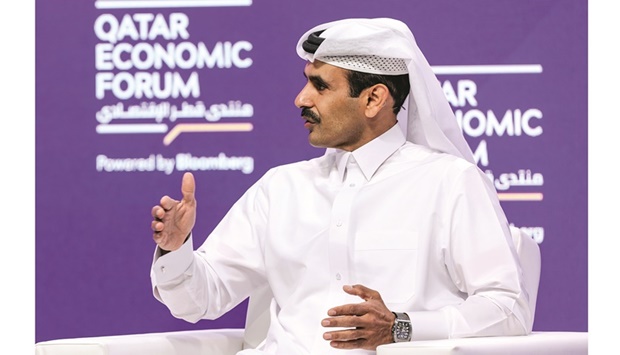"Carbon dioxide sequestration is an important element in expanding our business in the energy sector, while preserving the environment. Going forward, we are going to capture 11mn tonnes of carbon dioxide," HE the Minister of State for Energy Affairs Saad bin Sherida al-Kaabi told the second Qatar Economic Forum, powered by Bloomberg.
Qatar has been capturing and sequestrating up to 2.5mn tonnes of carbon annually since last seven years, he said.
Qatar continues to invest in low-carbon technologies such as carbon capture and sequestration and solar energy, and will start producing electricity from solar energy for the first time in the first half of 2022, as it aspires to double the use of solar power plants to generate electricity by 2030.
The North Field Expansion will include a carbon capture and storage (CCS) facility to capture carbon dioxide emissions from the project. The CCS facility will be the largest of its kind in the LNG industry, and will be part of a carbon dioxide capture and storage cluster in Ras Laffan in Qatar.
Power for the facility will be sourced from an 800MW solar power plant under construction nearby, further reducing the project’s carbon footprint.
One of the most important environmental elements of the NFE project is its carbon dioxide capture and sequestration system that will be integrated with the wider CCS scheme in Ras Laffan, which, once fully operational, would be the largest of its kind in terms of capacity in the LNG industry, and would be one of the largest ever developed anywhere in the world, he had said last year.
Equipping the expanded operations with CCS builds on the "sustainability pledge" that QatarEnergy had made in January 2021 for its upstream and downstream operations.
Qatar is the world's largest LNG producer, and by implementing the sustainability strategy, it would play a decisive role in helping reduce the impact of climate change by implementing measures to curb emissions, produce LNG using the latest proven carbon reduction technologies, and compensating for residual emissions where necessary.
Al-Kaabi, who is also the president and chief executive of QatarEnergy, said apart from using solar power for the CCS, the ships that would be used in transportation would not be using heavy fuels, instead it would run in LNG.
Qatar is also examining the best ways to develop and use other clean fuels such as hydrogen.


